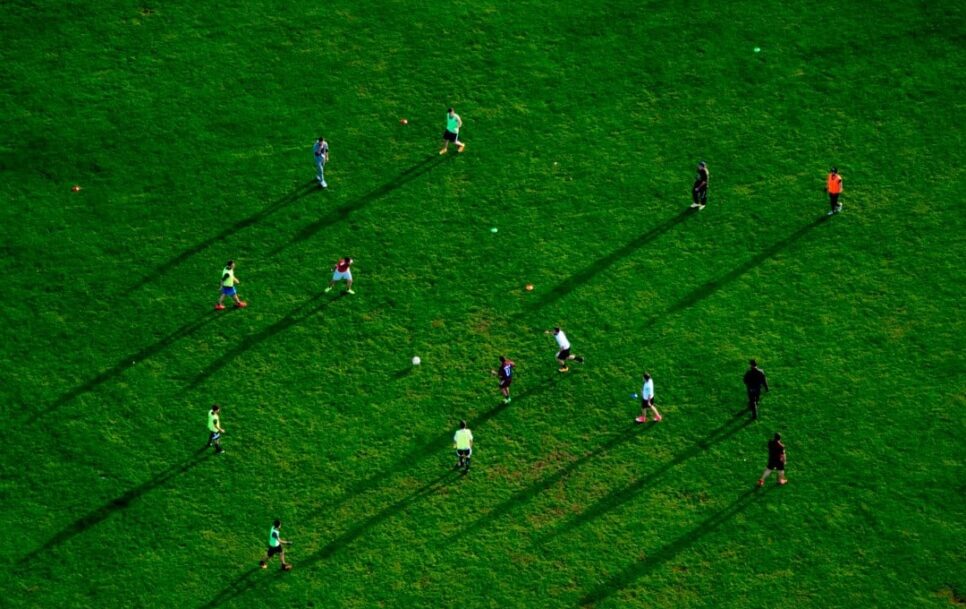Football rules that most football lovers have never even heard of
Although football is the most popular sport in the world, it does not mean that football fans know all the nuances and aspects of the game. The friendly team at Olybet.TV is here to introduce you to some football rules you may not have even heard of.
1. An own goal cannot be scored from a penalty kick
To prevent players from deliberately manipulating the result, FIFA has for decades implemented a rule where kicking the ball into the own goal from a free kick does not count as a goal.
If someone does that, the game is simply resumed with a corner kick from the opposing team. The same, by the way, also applies to free kicks and throw-ins.
True, here it must be taken into account that if someone – whether it is a goalkeeper or a defensive player – tries to play the ball that’s on the way to the own goal, but does so unsuccessfully and the ball still ends up in the net, then in this case the goal still counts.
This happened once to Aston Villa’s Finnish goalkeeper Peter Enckelman, who failed to control Olof Mellberg’s throw-in, which is why the goal counted.
2. If the ball is deflated, the goal does not count
Although this is an extremely unlikely scenario, FIFA rules state that if the ball becomes unplayable at any moment, the game will be stopped. It can happen that if the ball gets injured on the way to the goal or deflates suddenly, the goal is not counted, and the game continues with the referee’s ball instead.
This happened, for example, in the 2004/05 season in the Belgian Premier League, when Anderlecht player Walter Bassegio’s powerful foot broke the ball. The main referee of the game counted the goal and Anderlecht earned a 2:1 victory against RAA Louvierois, but later the match had to be replayed precisely because of the rule in question.
3. The card received for celebrating a goal remains valid even if the goal is canceled
Speaking of goal cancellations, this can still happen in football – especially in the VAR era. Whether the reason is an offside, a mistake, or another violation of the regulations.
However, if the player celebrates a goal in a way that is against the regulations – for example by taking off his shirt or jumping into the stands – and receives a yellow card for doing so, this warning remains in effect even if the goal is disallowed.
4. The red card can also be flashed before the opening whistle
If we already talked about the cards, the referee can send the player off the pitch even before the opening whistle. In general, the offense must be committed in this case either in the players’ tunnel or already on the court. This happened in 2017, for example, with Patrice Evra, who hit a fan in a fit of rage before the opening whistle, which is why he also received a red card.
5. At least seven players are required to start the game
To start a football match, a team must have a minimum of seven players (including the goalkeeper) on the field. So, in theory, as many as four men could quarrel with the fans before the opening whistle and thus earn a red card, and the match would still start.
However, if at any time there are less than seven players on the field, the match is simply stopped and the team in question is given a technical forfeit.
6. The six-second rule
Finally, perhaps the most senseless rule in the world of football: goalkeepers are allowed to hold the ball for a maximum of six seconds.
Such a rule is intended to avoid wasting time, but in reality, judges do not follow it very much. Hold the ball for six, seven, eight, nine or ten seconds if you wish.
However, if you try to go to extremes, as Liverpool’s former Belgian lock Simon Mignolet once did when he held the ball for 22 seconds against Bordeaux, the judges will still intervene.
Punishment: the first time a free kick to the opponent and from then on also a yellow card.
As a bonus, we’ll point out another peculiar nuance, that in the lower leagues of England – starting from the Conference, i.e. the fifth level – teams are not allowed to play in black shirts.
This is a historical rule that was introduced back in the day because referees used shirts of this color. With the reform of English football in 1993, which also created the Premier League, it was swept into the dustbin of history, but only at the higher levels. For some reason, this rule was not dismissed on the lower levels.
So, for several seasons, it was an annoyance to one of the star owners of Wrexham Football Club, Rob McElhenney, who wanted to adopt a black shirt after taking over the club – to honor the old (coal) mining town – but was unable to do so until the team was promoted to League Two.
Last year they succeeded, and Wrexham got the black shirts to honor the miners!
I’ve been trying to get this one made for 3 years. Under national league rule, we couldn’t have a black kit. Not a problem anymore 😉 pic.twitter.com/xCXGzuRpmX
— Rob McElhenney (@RMcElhenney) July 12, 2023







